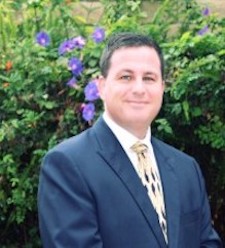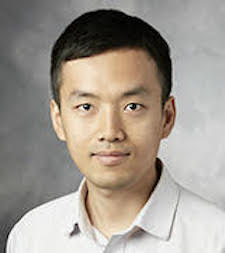About The Workshop
Deep learning continues to make a significant impact in biomedical research, engineering, and healthcare. It has been shown to have a significant impact in image acquisition, image analysis and understanding, and natural language processing applied to e-health. In medical image processing, deep learning, or artificial intelligence (AI), has spawned several research topics related to healthcare applications, which rely heavily on extracting useful information from complex images of various modalities. These applications demand high performance from key image analysis subtasks, e.g., segmentation, classification, visual information retrieval, and disease screening and diagnostics, among others. In spite of these advances, open challenges remain regarding efficiency in deep learning network design, impact of data characteristics, interpretation transparency and explainability, and effectiveness in decision reliability of predictions. The proposed workshop aims to address these issues through invited presentations from research leaders involved in machine learning and artificial intelligence research.
Keynote Speakers

Andrew Laine
Andrew F. Laine received his D.Sc. degree from Washington University (St. Louis) School of Engineering and Applied Science in Computer Science, in 1989 and BS degree from Cornell University (Ithaca, NY). He was a Professor in the Department of Computer and Information Sciences and Engineering at the University of Florida (Gainesville, FL) from 1990-1997. He joined Columbia University in 1997 and served as Vice Chair of the Department of Biomedical Engineering 2003 – 2011, and Chaired of the Department of Biomedical Engineering 2012 – 2017. He is currently the Percy K. and Vida L. W. Hudson Professor of Biomedical Engineering and Professor of Radiology (Physics). Professor Laine served on the IEEE ISBI (International Symposium on Biomedical Imaging) steering committee, 2006-2009 and 2009 – 2012. He was the Program Chair for the IEEE EMBS (Engineering in Biology and Medicine Society) annual conference in 2006 held in New York City and served as Program Co-Chair for IEEE ISBI in 2008 (Paris, France). He served as Area Editor for IEEE Reviews in BME in Biomedical Imaging since 2007-2013. He was Program Chair for the EMBS annual conference for 2011 (Boston, MA). Professor Laine Chaired the Steering committee for IEEE ISBI, 2011-2013, and Chaired the Council of Societies for AIMBE (American Institute for Medical and Biological Engineers) in 2012-2013. Finally, he served as IEEE EMBS Vice President of Publications 2008 – 2012, and was the President of IEEE EMBS 2015 and 2016. He is currently Chair of the IEEE EMBS Technical Committee on Biomedical Health Informatics. He is a Fellow of IEEE, AIMBE and IFMBE.

Dmitry Goldgof
Dmitry Goldgof is an educator and scientist working in the area of Medical Imaging, Image and Video Processing, Computer Vision and AI, Ethics and Bioengineering. He received Ph.D. from University of Illinois and M.S. from Rensselaer Polytechnic Institute. Dr. Goldgof is Distinguished University Professor and Vice Chair in the Department of Computer Science and Engineering at the University of South Florida. Dr. Goldgof has graduated 30 Ph.D., 45 MS students, published over 100 journal and 200 conference papers (over 12,500 citations, h-index 57). Professor Goldgof is Fellow of IEEE, Fellow of IAPR, Fellow of AAAS and Fellow of AIMBE.

Ming Jack Po
Ming Jack Po is a product manager at Google working in healthcare. He works on on applying and scaling up machine learning (in particular deep neural networks) for healthcare applications. Prior to his current role at Google, he has also spent time in Google’s search unit working on health related queries. In particular, he worked on projects that help bring consumers better curated information on various health conditions, medications, birth control, and mental health. Prior to joining Google, Jack spent a decade working in different consulting capacities in areas related to medical devices and healthcare delivery. Jack is currently a trustee of the Austen Riggs Center, a board member of El Camino Health, a member of the National Library of Medicine's Board of Scientific Counselors, and a member of the ONC's Interoperability Standards Priorities Task Force. Jack received his MD and PhD from Columbia University, his Bachelor’s degree in Biomedical Engineering, and Masters degree in Mathematics from Johns Hopkins University.

Zhiyun (Jaylene) Xue
Zhiyun (Jaylene) Xue is a Staff Scientist at the Lister Hill National Center for Biomedical Communications (LHC) at the National Library of Medicine (NLM). She obtained her Ph.D. from Lehigh University USA, M.S. and B.S. from Tsinghua University, China. Xue has been working at LHC since 2006 on a number of medical imaging informatics projects. Her research fields include machine learning, image processing, and computer vision with a focus on image segmentation, classification, and retrieval. Aiming to assist clinicians at the point-of-care, address the global health challenges, and serve vulnerable and underserved populations, Dr. Xue applies her knowledge and expertise gained through years of research and development to analyze and process biomedical images of multiple types such as X-ray, CT, colposcopy, cytology, histology, and literature figures. Dr. Xue is a coauthor of a number of peer-reviewed journal and conference publications.

Sivaramakrishnan Rajaraman
Sivaramakrishnan Rajaraman joined the Lister Hill National Center for Biomedical Communications (LHNCBC), National Library of Medicine (NLM), National Institutes of Health (NIH), as a postdoctoral researcher in 2016. Siva received his Ph.D. in Information and Communication Engineering from Anna University, Chennai, India. He is involved in projects that aim to apply computational sciences and engineering techniques toward advancing life science applications. These projects involve the use of medical images for aiding healthcare professionals in low-cost decision-making at the point of care screening/diagnostics. He is a versatile researcher with expertise in machine learning, data science, biomedical image analysis/understanding, and computer vision. He has more than 15 years of experience in academia where he taught core and allied subjects in biomedical engineering. He has authored several national and international journal and conference publications in his area of expertise.

Anthony Reina
Anthony Reina is the Chief AI Architect for Health Sciences at Intel corporation. He is a medical doctor with extensive experience in artificial intelligence, neurophysiology, telemedicine, and data science. His biggest claim to fame is spending 12 years as a stay-at-home dad to his two sons while his wife served as a psychiatrist in the U.S. Navy. His current work involves privacy-preserving, distributed training for 3D convolutional neural networks in medical imaging (which is much easier than raising two teenage boys). He’s published papers detailing how the brain controls arm movement and previously worked on brain-computer interfaces that allow paralyzed patients to control robotic arms and blind patients to regain sight.

Mu Zhou
Mu Zhou serves as head for clinical AI at SenseBrain research. He was a research scientist and a postdoctoral fellow at medical school, Stanford University. He received the Ph.D. degree in computer science and engineering from University of South Florida, Tampa, US. He is a scientist with broad interests in deep learning, medical image analysis, and bioinformatics. He develops approaches to analyze and process quantitative information from multi-scale biomedical data across radiology, histopathology, and omics profiles in oncology. The findings enable early detection of disease, outcome prediction, and medical decision support for patients. He has published numerous journal and conference articles in Nature Machine Intelligence, Radiology, Pattern Recognition and Medical Image Analysis.
Final Schedule

Keynote 1: Andrew Laine
Title: Unsupervised Learning of Localized Texture Patterns of Pulmonary Emphysema on Computed Tomography

Keynote 2: Dmitry Goldgof
Title: Explaining Deep Learning Using Radiologist Defined Semantic Features

Keynote 5: Anthony Reina
Title: Intel AI Technologies for Efficient Medical Image Analysis
Break

Keynote 4: Zhiyun (Jaylene) Xue
Title: Automated Visual Evaluation (AVE) for Cervical Cancer Screening and its Challenges

Keynote 6: Mu Zhou
Title: Integrating Imaging, Omics, and Clinical Data towards Improved Outcome Management in Lung Cancer

Keynote 7: Sivaramakrishnan Rajaraman
Title: Deep Neural Ensembles for Improved Pulmonary Abnormality Detection in Chest Radiographs
Break

Keynote 3: Ming Jack Po
Title: Lessons learned from Machine Learning in Google applied to Medical and Biological Imaging
